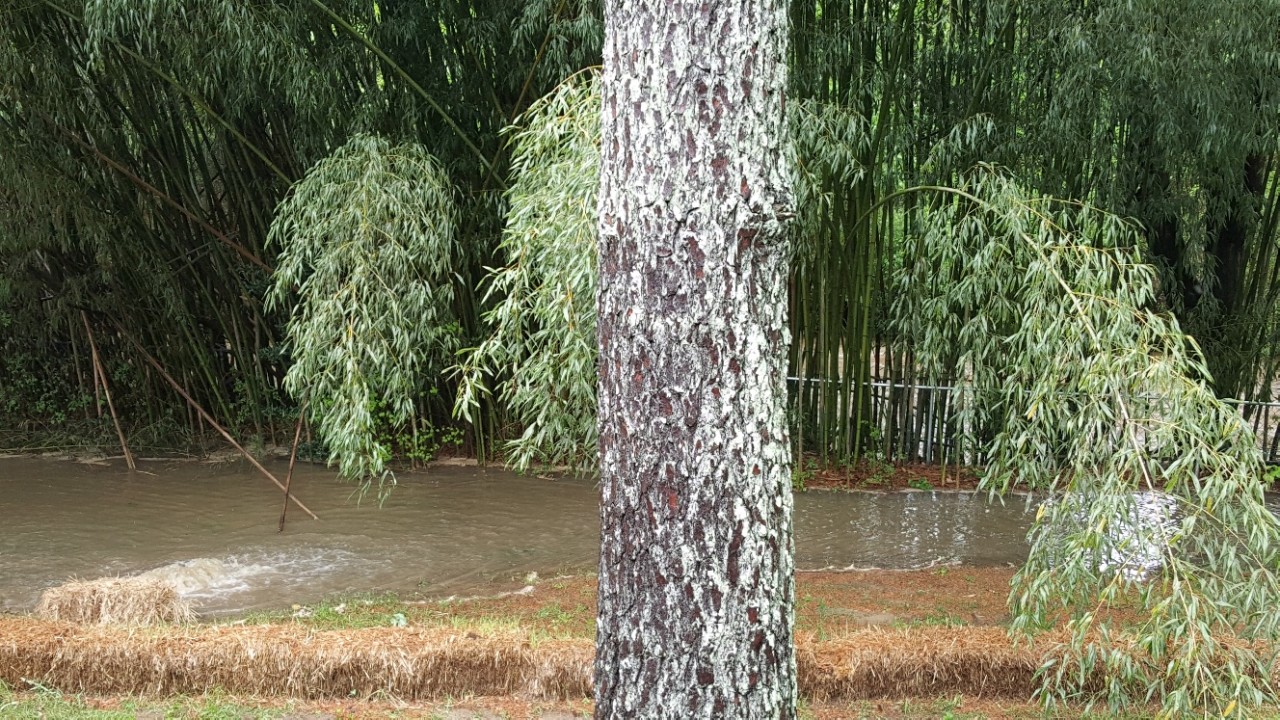Last Week’s Storms Caused Dozens Of Sewer Spills Around Atlanta

Sewage overflows from a manhole in Ranee Bassett’s backyard on Friday. DeKalb County had put the hay bales there, after a previous overflow.
Ranee Bassett
Last week’s big storms led to sewer spills around the metro area.
In Atlanta, there were nine spills; the city is still calculating the volume. Clayton County had several small spills and one large one in the Flint River basin. And in DeKalb, there were dozens of spills, spilling hundreds of thousands of gallons of sewage.
According to DeKalb, 19,000 gallons of sewage overflowed from a manhole into a single backyard on Friday. By Monday, the water had drained away, but homeowner Ranee Bassett said there was still toilet paper on the ground and the smell was terrible.
“Very bad,” she said. “I cannot even go out in my backyard.”
This wasn’t the first spill in her yard; there was another big overflow in December, and others before that.
More than 400,000 gallons spilled last week into DeKalb County creeks, though that number will likely go up, as some spill sizes have yet to be tallied. The old sewer system was neglected for decades, and while the county is working now to address the issues, big storms can still flood the pipes.
Maria Houser, the director of the consent decree and environmental compliance for DeKalb County said that the county is working on fixing its sewers, and has made progress, by installing flow meters, for instance. And it’s aware of the problems at Bassett’s house.
“We are turning the ship around,” she said. “We are hearing our citizenry and the community and folks that are concerned about the waterways.”
Houser said more fixes are coming, though some might be months or years away. The county is under a federal consent decree to address its sewer problems by June, 2020.
The City of Atlanta is also under a federal consent decree to fix its sewers, with a deadline to complete construction projects by 2027.
Gwinnett County also reported a sewer spill last week, though a county official says it was caused by wipes and debris blocking a pipe, and not by the rain.








